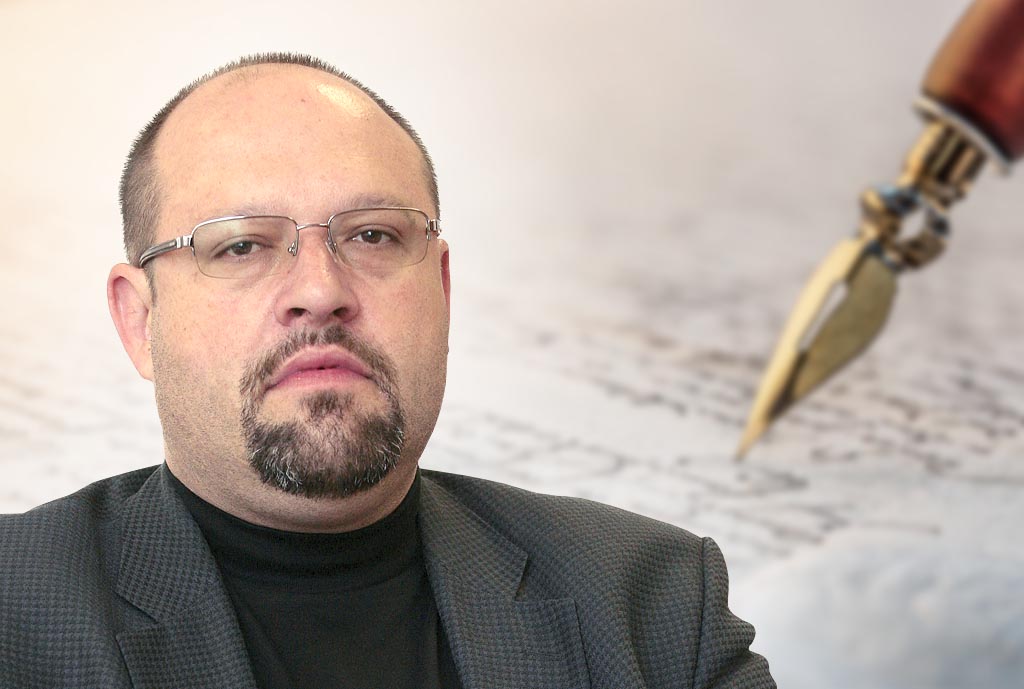By: Dr Matevž Tomšič
While the outcome of this year’s European elections does not represent such a significant shift in terms of the balance of political power as feared by the left and hoped for by the right, it nevertheless offers certain grounds for at least a partial change in direction. From the perspective of the future of the European transnational connection as a community that nurtures its own identity and is aware of the importance of its cultural heritage, on which the freedom, prosperity, and security of its inhabitants are based, the political reorientation should be quite concrete.
The first priority should be to place the freedom of thought and action of people in all areas, from politics through the economy to culture. This, of course, does not refer to the “freedom” as understood by the largest Slovenian ruling party (which even has it in its name), as this is a complete perversion of its original meaning – which is clearly reflected in the actions of this party (which is aimed at burdening and restricting citizens). We have in mind freedom, which is an expression of the heritage of classical liberalism, allowing individuals to develop their creative potential while also assuming responsibility for their own actions. This freedom should only be restricted in exceptional circumstances. Above all, it is unacceptable to restrict freedom of expression (which also includes media freedom) in the name of some kind of “political correctness” and the fight against “hate speech”, which in practice is mostly a cover and a tool for persecuting those who oppose the so-called progressive agenda.
On the other hand, it is necessary to maintain feelings of common belonging by nurturing European traditions. It is important to maintain the awareness that European culture (which European settlers have also carried to some other parts of the world) has created achievements unmatched in history. Therefore, one must be proud of it. It is crucial to firmly suppress attempts to impose some kind of “European guilt”, promoted by those (from Islamists to a known part of the modern left) who hate Europe. Similarly, we must resist attempts at social engineering (e.g., through the dismantling of traditional society and the introduction of an arbitrary number of genders) by the same people who aim to undermine European cultural foundations.
IT MUST NO LONGER HAPPEN THAT PART OF EUROPEAN POLITICS ABUSES THE CONCEPT OF THE RULE OF LAW TO ADVANCE THEIR AGENDA AND TO SANCTION THOSE WHO ARE NOT “ON THEIR WAVELENGTH”. THIS WAS, AFTER ALL, A COMMON PRACTICE OF THE LEFTISTS IN THE LAST TERM OF THE EUROPEAN PARLIAMENT.
The European economy is becoming less competitive globally. This situation has been significantly influenced by misguided policies in recent years. Therefore, it is necessary to eliminate unnecessary financial-administrative barriers and burdens. There is an urgent need to abandon the imprudent “green transition”, which is destroying European industry and agriculture while providing competitive advantages primarily to China. Environmental protection should be based on technological innovations, not on illusionism and ideologically motivated prohibitions.
When discussing the regulatory framework, it is crucial to establish transparent rules that apply equally to everyone. This applies both to individuals and to states. The European Union should only allow immigration for those who meet the appropriate conditions. And they must respect the laws that apply here; anyone who refuses to do so should be expelled. No “cultural peculiarities” should be an excuse for granting exceptions. The actions of EU member states should also be treated with the same standards. It must no longer happen that part of European politics abuses the concept of the rule of law to advance their agenda and to sanction those who are not “on their wavelength”. This was, after all, a common practice of the leftists in the last term of the European Parliament.
Of course, every policy involves compromises, and politics at the European Union level is no exception. And as it seems, after these elections, the leading political groups will divide positions among themselves again. This is not the best prospect for a more concrete change in direction. It will likely already be a success if they manage to prevent the implementation of any new crazy ideas and harmful measures.

